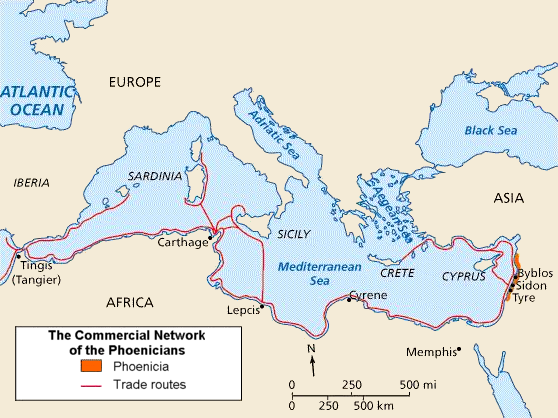|
Gisco (died 239 BC)
Gisco was a Carthaginian general who served during the closing years of the First Punic War (264–241 BC) and took a leading part in the events which sparked the Mercenary War. He was a citizen of the city state of Carthage, which was located in what is now Tunisia. His date of birth and age at death are both unknown, as are his activities prior to his rise to prominence towards the end of the First Punic War. When the Carthaginians conceded defeat in the war in 241 BC, Gisco was commander of the major base of Lilybaeum (modern Marsala) on Sicily, subordinate to Hamilcar Barca, the overall Carthaginian commander on the island. On being ordered to negotiate a peace treaty, Hamilcar retired to Carthage in a rage, leaving Gisco, as the next most senior commander, in charge of negotiations with the Romans. These resulted in the Treaty of Lutatius, which ended the war. By this time the troops whom he had sent from Sicily to Africa to be repatriated were in a mutinous state over a pa ... [...More Info...] [...Related Items...] OR: [Wikipedia] [Google] [Baidu] |
Utica, Tunisia
Utica () was an ancient Phoenician and Carthaginian city located near the outflow of the Medjerda River into the Mediterranean, between Carthage in the south and Hippo Diarrhytus (present-day Bizerte) in the north. It is traditionally considered to be the first colony to have been founded by the Phoenicians in North Africa. After Carthage's loss to Rome in the Punic Wars, Utica was an important Roman colony for seven centuries. Today, Utica no longer exists, and its remains are located in Bizerte Governorate in Tunisia – not on the coast where it once lay, but further inland because deforestation and agriculture upriver led to massive erosion and the Medjerda River silted over its original mouth."Utica (Utique) Tunisia" ''The Princeton Encyclopedia of Classical Sites. ... [...More Info...] [...Related Items...] OR: [Wikipedia] [Google] [Baidu] |
.png)
